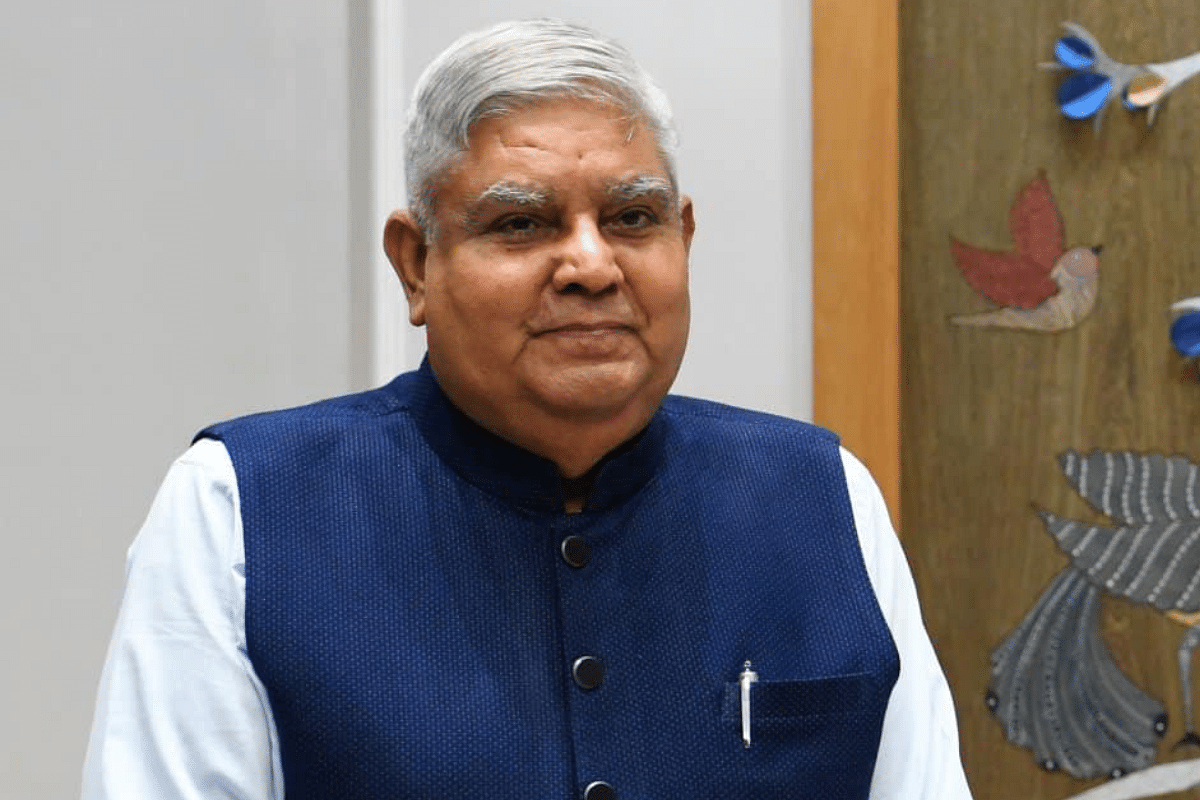News Brief
Dhankar Drops Bombshell: Kesavananda Bharti Case (Basic Structure) Set A Bad Precedent

Vice President Jagdeep Dhankhar.
Vice President Jagdeep Dhankhar at the 83rd All India Presiding Officers’ Conference at Rajasthan remarked that Kesavananda Bharati Case of 1973 had set a wrong precedent.
This was the judgment wherein the Supreme Court laid down the ‘basic structure’ doctrine.
In simple terms, the ‘basic structure’ of the Constitution are those features of the text which cannot be amended even by Parliament. In practice, the only arbiter of what constitutes the ‘basic structure’ has been the Supreme Court.
The Vice President is reported to have said that he did not subscribe to the judgement, which had laid down that Parliament cannot change the basic structure of the Constitution and the Supreme Court had the final authority in this regard.
He mentioned that it was in 1973 when the Supreme Court for the first time evolved the right of courts to strike down constitutional amendments that violated what is called as “Basic Structure” or the ”Fundamental Architecture” of the Constitution.
“In the subsequent years the highest courts delivered significant rulings on matters that it held pivotal to this Basic Structure and in the process parliamentary sovereignty was compromised,” he said.
He said that in a democratic society the basis of any basic structure has to be the supremacy of the mandate of people, therefore the primacy of sovereignty of Parliament and legislature is inviolable.
Om Birla, Speaker of the Lok Sabha, also present at the conference discussed the issue and said that the judiciary should respect the sanctity of the legislative bodies.
Dhankar also reportedly referred to the judiciary striking down the National Judicial Appointments Commission (NJAC) in 2015 and said that it was "a scenario perhaps unparalleled in the democratic history of the world".
He stated that ‘parliamentary sovereignty’ and ‘autonomy’ are of utmost importance for the survival of democracy and cannot be permitted to be compromised either by the executive or the judiciary.
He made a categorical statement with respect to judicial interference in legislative matters and said, "the executive is ordained to be in compliance with the constitutional prescription emanating from Parliament. It was obligated to adhere to the NJAC. Judicial verdict cannot run it down."
He went on to mention that, "parliamentary sovereignty cannot be permitted to be diluted or compromised by the executive or the judiciary."
Support Swarajya's 50 Ground Reports Project & Sponsor A Story
Every general election Swarajya does a 50 ground reports project.
Aimed only at serious readers and those who appreciate the nuances of political undercurrents, the project provides a sense of India's electoral landscape. As you know, these reports are produced after considerable investment of travel, time and effort on the ground.
This time too we've kicked off the project in style and have covered over 30 constituencies already. If you're someone who appreciates such work and have enjoyed our coverage please consider sponsoring a ground report for just Rs 2999 to Rs 19,999 - it goes a long way in helping us produce more quality reportage.
You can also back this project by becoming a subscriber for as little as Rs 999 - so do click on this links and choose a plan that suits you and back us.
Click below to contribute.
Latest